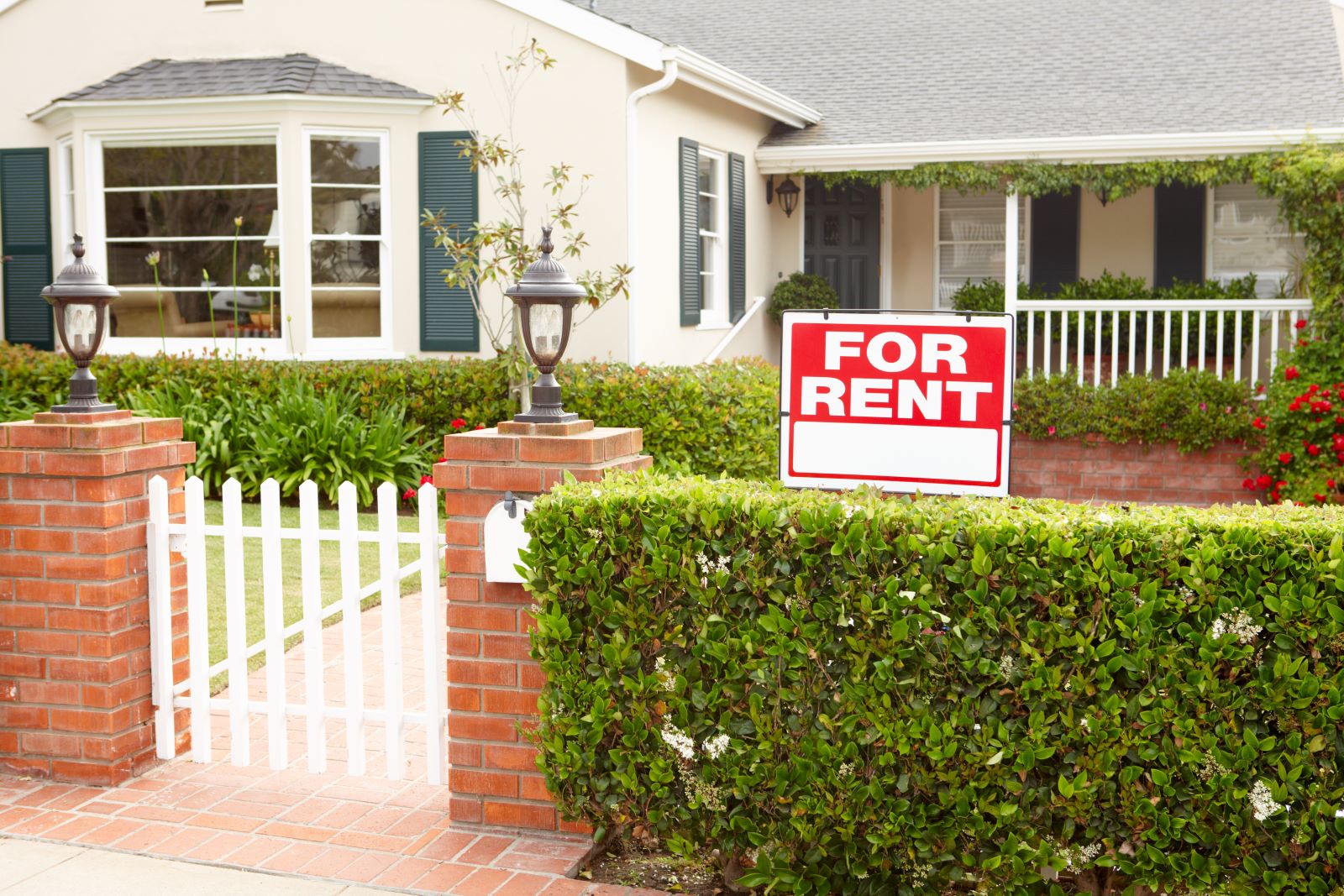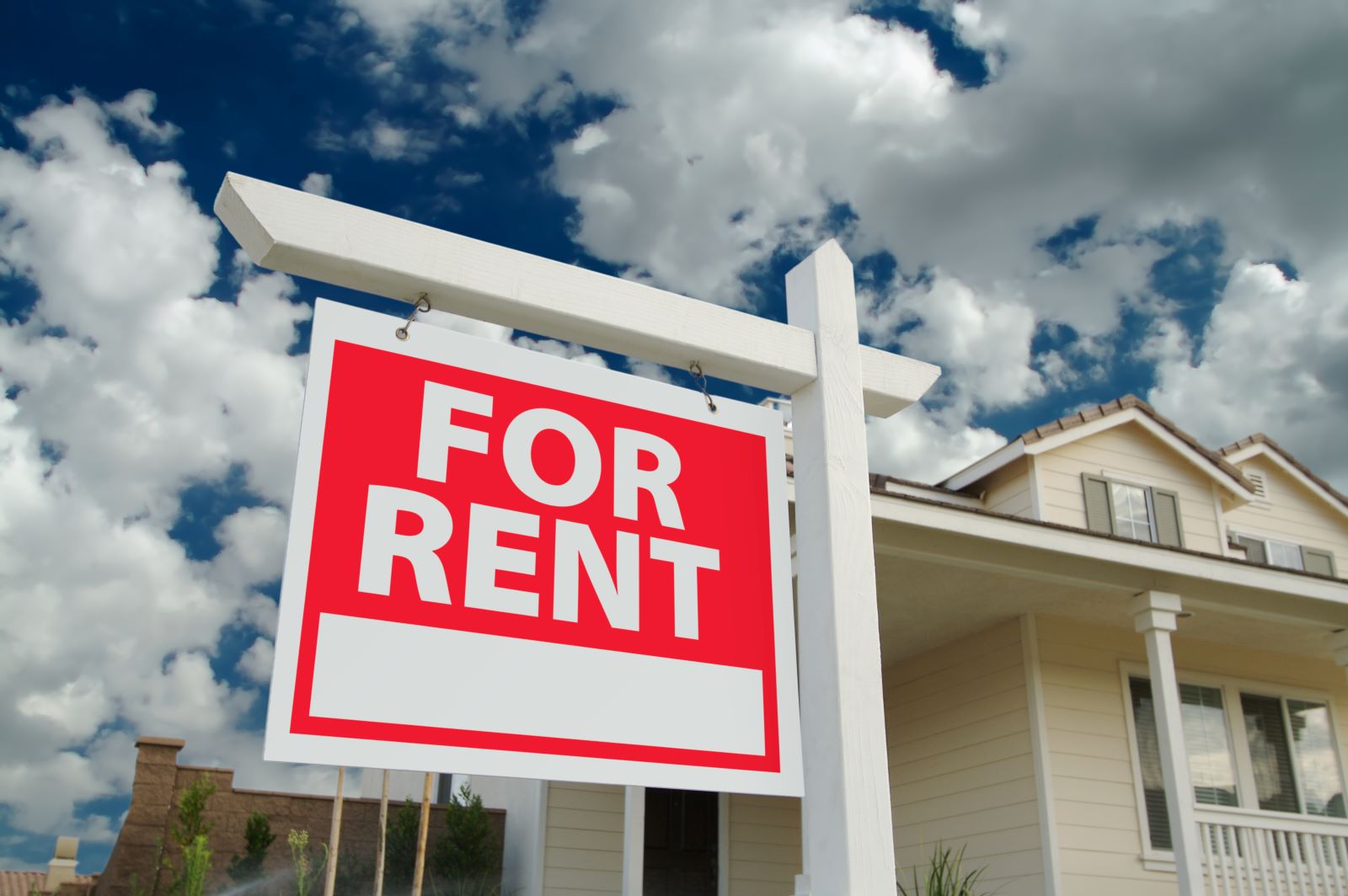Table of Contents
- How Do You Get Started Purchasing Worthwhile Rental Properties?
- Important Aspects to Consider When Purchasing Rental Properties
- Other Factors To Consider When Purchasing Property
- Choosing The Right Property For Your Needs
- Should You Diversify Into Different Rental Properties?
- Use Networking And Investment Tools for Finding the Best Rental Properties
- Are You Ready To Start Investing In Rental Properties?
- Sources:
Choosing your investments wisely is one of the most important things you can do to protect your portfolio and make sure you get consistent earnings over time. When investing in rental properties, the same principle applies. Choose the right properties, and you’re likely to have an investment that performs well and doesn’t need much excess upkeep. Choose poorly, and you might have an underperforming rental that takes up a lot of time and resources without ever producing a good return.
With that in mind, it’s important to be thinking about how to find the best rental properties, whether you’re a seasoned real estate investor, or just getting started with your first rental.
Here are the tips and tricks you need to know to find good rental properties, and how to tell a solid investment from one that won’t perform nearly as well.

How Do You Get Started Purchasing Worthwhile Rental Properties?
The truth is that there are good rental properties in just about every area if you know what to look for. Sometimes the issue is that those good properties might not always be in your price range, or they might be a good opportunity for a different kind of investor, but not for you.
This means that you need to have a good idea not only of the local market and housing conditions but also of the kind of real estate investor you’re likely to be – and how much time and energy you’re willing to put into maintaining a rental property. So what is the best method exactly for finding the best rental properties?
Figuring out those details often starts with guides like this one, but we aren’t going to be talking about how much money you need to spend, or even the best states to buy rental properties in. You can get that information from other articles, including our other articles. This is about the tactics and ways of thinking about rental properties that will help you find your ideal rentals.
Remember, no two investors are exactly the same. Choosing the right rental properties for you and your investment strategy is just as important as learning to tell good rentals from bad. As you read this article, think about the resources you have available and your key goals for your rental properties.
If you’re looking for a little extra income to help pad your retirement fund, your investment goals are going to be radically different from someone looking to become a full-time landlord, or someone who is interested in starting a rental management company. Take a moment to write out some of your starter goals, and feel free to add to the list as you read and continue your research. The more specific your goals are, the more you’ll have to work with when it comes time to choose between the rental opportunities in front of you.
Now, here’s how you’ll find the best rental properties, not just in your area, but for your specific investment goals.
Important Aspects to Consider When Purchasing Rental Properties
The first thing you need to do if you want to find high-quality rental properties is obtain the basic information you need about the local rental market, and what market factors might influence housing demand and prices in the near future.
This step is important any time you’re buying a new rental, both for the local area around the property and the regional market. You don’t, for instance, want to buy a rental in a factory town only to learn that the factory plans on closing its doors in the next 5 years.
That’s the kind of economic upset that can have big impacts on the local housing market but may not show up on the housing numbers alone. So don’t hesitate to do your research, and if you’re curious about something going on in the area, it’s a good idea to follow your instincts and learn more.
Over time, as you practice the skill of gathering the economic information you need, this process will be easier, and you’ll need to spend less time on it. If you buy several properties in the same area, you might be able to save yourself even more time, since your existing knowledge of that market will help you make better and more informed investment decisions.
Here are some of the key pieces of information you should consider when purchasing rental properties:
- Area desirability
- Property condition
- Local job market
- Local amenities/neighborhood reputation
- School ratings
- Local market value and comps
Let’s talk a little more about these factors, and what you should be considering in terms of each factor.
Area Desirability
This is a key factor; a property in a highly desirable area may be worth compromising on some of the other details about the property because it may make it easier to find consistent and qualified tenants willing to pay more in rental pay just for location alone.
Desirability is often a combination of many factors, including local amenities, school systems, the kinds of jobs available in that area, and other perks like having a location on a beautiful street or near a high-quality mass transit system.
Think about desirability as a ratio between the positive traits a property has, and the negatives. So a property that will need high rental rates compared to the surrounding area might still be a good investment if it has high desirability thanks to beautiful construction, advantageous location, or other key features.
The type of property can also be an important part of how desirable it is. For example, most people would prefer to live in a single-family home rather than a town home, or in a duplex instead of in an apartment.
The more people are likely to want to upgrade to a different type of property, the more positive traits the rental should have to overcome the negatives inherent in that property type.
At the same time, desirability is relative to the local housing market. When housing is tight and there aren’t a lot of vacant units available at any one time, people will be more willing to compromise on their living situation because better opportunities are less available and more expensive.
Like all the other factors on this list, the overall desirability of a property is one thing to consider but it’s still relative to the other factors.
Property Condition
This one is relatively simple. The sooner you can take a property to market and get a tenant paying rent, the better. But when it comes to the property condition of a rental you’re considering, serious problems can translate either to higher expenses or long delays before you can put the property on market. Ideally, a rental property should be as close to move-in ready as possible.
If your available budget determines that more compromise is required on property condition, it’s a good idea to have a list of repairs that you’re willing to make, and repairs that are too expensive or time-consuming to be worth the price reduction on the property. Remember, it’s okay to be firm on this list, especially if you’re a beginner in the rental market. You need to ensure the profits you’re investing in are worthwhile and can start generating an income at least sufficient to cover the costs of ownership as soon as possible.
Local Job Market
The job market isn’t something that you can control or even entirely anticipate as a rental investor, but choosing the best rental properties should always take the current and anticipated job market into account. A beautiful and highly desirable property might not necessarily be a great investment if the local job market isn’t flourishing or the area isn’t easily accessible to a location with job opportunities.
The best job markets are dynamic, with more than one strong job sector, and a range of incomes. This factor is important because it means there are a range of opportunities, and local residents have chances to move up in their careers or to change careers if they choose to.
People who have more job options tend to make longer renting tenants, and competitive job markets offer the kind of pay and benefits to support better rental prices. All of this can make for a healthier rental market and shorter vacancies between tenants.
Local Amenities and Neighborhood Reputation
There are a couple of reasons for the amenities and reputation of an area lending importance to a rental property selection. For one thing, the amenities that are available locally can make a big difference in the interest provided by tenants looking in the area.
If you choose a rental property hoping to get young families for tenants, but there’s no child care or local schools for them to use, you probably won’t attract this kind of tenant. At the same time, if there’s a large university near the rental you’re considering, you’ll probably have an easier time getting tenants from the student population and their related families. The number of local accessible parks, trails, community centers, shopping centers, and more are also big factors in rental desirability.
The reputation of a neighborhood can also give you important insights into what kinds of problems to anticipate for rental properties in that neighborhood. It’s a good idea to talk to other rental investors and landlords to see what challenges they’ve faced. For instance, if an area is prone to break-ins or other crimes you may have a harder time finding renters. It’s also recommended that you pull crime statistics for comparison purposes; there are a lot of free online websites that you can use to check and compare statistics on crime and other factors.
School Ratings
When considering any rental properties for purchase, school ratings are a key factor to consider. Education, from kindergarten to university, is one of the most important factors in forming a community and generally dictates how desirable an area is. A good school system can also uplift community morale and lead to higher rates of population growth. When looking for your next rental property investment, research how local schools are rated online – from the education standards & resources available, test scores & student performance achievements, how much of the budget goes towards learning & enrichment programs, how diverse the student body is – these can all give you crucial insight into how attractive a neighborhood is for prospective tenants. By taking their educational opportunities into account, you’ll know how choose the best rental properties that will make your portfolio as profitable as possible.
Local Market Value and Comps
Comparable local market value is an important part when learning how to choose the best rental properties, and can sometimes be a deal-breaker on an otherwise good option.
If you purchase a rental property for more than the property is worth, or if you aren’t able to find tenants promptly available to rent the property at a reasonable monthly rate, you’ll struggle to make a return on your investment. Being able to accurately analyze rental market value is key to making good rental property investments.
Local value is key because the value of similar properties nearby may be different than the same property in a different area. If you attempt to rent based on national or even state prices but prices are radically different in the community being considered, you might not be able to find tenants. Or, conversely, you may underprice your rental and have no problems getting tenants, but lose out on the potential profitability of the investment.
Understanding how the local market is likely to fluctuate is also important. If housing demand and values are going down around the same time you’re looking to purchase, it might not be a good time to invest in that particular community, especially if it has a high vacancy rate. But if prices are steady, and anticipated to stay steady or increase in the near future, and vacancy rates are average or lower than average, that’s probably going to be a good area to invest in.

Other Factors To Consider When Purchasing Property
So, we’ve discussed the main things to consider when researching buying rental properties, but the list doesn’t stop there! Take a look at these additional factors that could make or break a great rental investment!
- Local natural disaster risks
- Local property taxes
- Future development plans
While these factors are definitely out of your control, they are important to consider. High rates of natural disasters like flooding and fires can increase the cost of insurance, which means a greater cost burden for the investor, and can potentially scare away renters.
High property taxes are another potential cost factor to consider. While lower-than-average rates can make a rental property more affordable, there are certain areas that carry a tendency for higher taxes; also keep in mind that tax percentages tend to fluctuate from year to year and can potentially increase considerably, impacting your monthly mortgage costs considerably.
Lastly, development plans in the area can have both a positive and a negative effect on your rental prospects. New developments are often a sign of a healthy or growing community or may be a sign that the local government is investing in improvements and hoping to revitalize a stagnant area. At the same time, if the new development is a less desirable or contentious one, it could negatively impact population growth and renter interest in the area.
Choosing The Right Property For Your Needs
Understandably, different investors are going to have varying needs and desires for rental property investments, making the winning combination for locating great rental properties a little different for every investor. In general, first-time investors, or smaller investors that have less than 5 properties, are going to be better served by single-family home rentals and condominium rentals. These property types are often recommended because both single-family houses and condominiums are higher desirability properties, and the maintenance and management for these properties can be a little more manageable – especially if you don’t have a property management company.
The downside of single-family investments is that the rent may not produce more than a little extra spending cash, unlike larger multi-family rental investments that can eventually become your entire income. On the other hand, smaller rental units also cause fewer demands on your time, and you may not need to pay a management company or maintenance team to take care of them.
More seasoned investors, especially those looking to make their entire income from their rental investments and other kinds of investment, might be better served by larger multi-family rental investments, like townhomes, duplexes, and apartment complexes. Owning those larger rental properties comes with increased costs for maintenance and management, but also comes with the promise of greater profits if you choose wisely and manage the property well.
Local demand and availability may also be important considerations. For example, you might not want to invest in a large apartment complex, even as an experienced investor, if there is a high rate of apartment vacancy and a good inventory of desirable single-family homes nearby. Tenants that might otherwise consider apartment living are more likely to see if they can afford to live in a house instead if it’s an option and prices are comparable.
Should You Diversify Into Different Rental Properties?
There are a lot of different kinds of rental properties out there, and there are different schools of thought when it comes to investing in them.
For serious investors, it might make sense to have a diverse rental portfolio that includes different kinds of properties in different areas; this way investments are protected, even if you have a temporary downturn in one market.
On the other hand, investing in different properties this way, especially as a solo investor, can take a lot of time, attention, and money. Additionally, there’s always more research and planning involved compared with maintaining several similar investments in a similar area.
Look at it this way if you’re a newer rental investor: Starting off by specializing in a single type of investment, like single-family homes, can make it easier for you to develop the expertise needed to evaluate the investments and find the best opportunities for larger and more expanded rental types in the future.
Both options have different advantages and disadvantages when you’re first learning how to choose the best rental properties for you, but it’s important to know what strategy you want to go with before you get started – whether starting small or going big. Remember, it’s perfectly fine to begin with only one or two rental properties – especially if you are looking for supplemental income rather than a rental investment career.
Use Networking And Investment Tools for Finding the Best Rental Properties
Lastly, finding those perfect rental properties can really come down to leveraging the investment tools that are available to you. There are a lot of opportunities out there, but you might miss out on some of the best investment opportunities if you aren’t on the lookout for them.
One of the best things you can do is network with other real estate investors to learn from their experiences and knowledge. Engage in social media groups focused on real estate or reach out within your local community and see who you can meet with or if there are classes or gatherings you can attend. The more investment community you have, the easier it will be to find hidden gems.
Next, explore the different investment tools you have available for any kind of rental property you’re interested in. In this article, we’ve mostly been talking about housing rentals, but a lot of this advice also applies to investors looking to buy office space to rent, industrial buildings to rent, and more. All of those sectors have specialized investment tools that can save you a lot of time and effort when you’re learning methods for locating rental properties.
Even something as simple as keeping an eye on Zillow or Realtor.com can be an effective tool for finding good properties, and for researching neighborhoods and market conditions. There are plenty of other options though, including Rentometer to help you choose the best rental prices or Propertyware for managing your portfolio. Taking some time to search and find the tools that work for you and leveraging them for useful education and knowledge when you’re ready to invest is priceless.
Are You Ready To Start Investing In Rental Properties?
If you’re ready to start investing in the rental market but want a little more support with finding the perfect rental properties, or figuring out which rental properties are going to be best for you and your investment portfolio, we can help.
The experienced team at Teifke Real Estate is happy to offer coaching, help you find properties that are the right fit for you, and more. Schedule an appointment to talk with us, and go over your resources and rental plan today!
Sources:
- Hamed E. 5 steps to conducting an accurate rental market analysis. Investment Property Tips | Mashvisor Real Estate Blog. Published August 8, 2022. Accessed February 14, 2023. https://www.mashvisor.com/blog/5-steps-rental-market-analysis/
- Rohde J. 36 real estate investing tools and resources you’ll want to bookmark. Learn Real Estate Investing. Published August 4, 2022. Accessed February 14, 2023. https://learn.roofstock.com/blog/real-estate-investing-tools.
- Rohde J. The different types of rental properties & which is best for you. Learn Real Estate Investing. Published May 15, 2020. Accessed February 14, 2023. https://learn.roofstock.com/blog/types-of-rental-properties.






